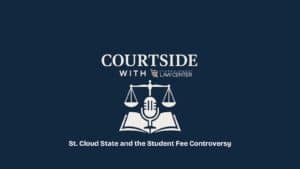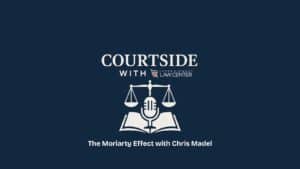In a decision authored by Justice Gordon Moore, the Minnesota Supreme Court today upheld Governor Walz’s declaration of the COVID-19 peacetime emergency and the constitutionality of the Minnesota Emergency Management Act (MEMA)—the law that Governor Walz used to seize control of the state for 16 months and issue one executive order after another controlling minuscule details of Minnesotans’ daily lives.
The Court held (1) MEMA allows a declaration of an emergency during a pandemic, generally; (2) the COVID-19 pandemic inherently affected “property” and Governor Walz did not have to show any evidence supporting his emergency declaration; and (3) MEMA’s broad grant of power to the Governor does not violate the Minnesota Constitution’s nondelegation doctrine. Retiring Justice G. Barry Anderson concurred in the result but noted that Minnesota’s current emergency management laws do raise serious constitutional concerns and should be revisited by the legislature.
The Upper Midwest Law Center (UMLC) is disappointed with the Court’s decision. UMLC filed this action in August 2020 on behalf of sixteen Minnesota citizens, business owners, and churches, challenging the Governor’s executive order mandating masks in indoor public spaces. UMLC argued that the Governor was taking upon himself the whole legislative power of the State, but only the state legislature has the authority to enact such laws consistent with the Minnesota Constitution.
The Court disagreed with UMLC’s position in part because the Court said it “refuse[s] to assume that the Legislature would act so wholly upon partisan interests that it becomes incapable of checking the Governor’s powers in the manner it itself provided.” Opinion, page 20. The Court’s optimistic view of the Legislature’s ability to look past partisan interests is, unfortunately, seriously undermined by the ruling Democrat majority’s recent spate of passing one unconstitutional law after another—and the federal District of Minnesota’s issuance of one injunction after another setting those laws aside. The Court did note that the “breadth of authority granted to the Governor under the Act is great, but so is the need of the executive branch to respond quickly in times of crisis. A delicate balance must be struck to ensure that Minnesotans are protected from both government overreach and emergent threats to their health.” Opinion, page 21.
At this juncture, the Court did not have the opportunity to examine whether any particular emergency order that could be issued in the future violates other constitutional guarantees.
In his concurrence, while agreeing with the Court’s result, Justice Anderson acknowledged that the “appellants have advanced arguments that, particularly with executive branch emergency orders issued over extended periods of time, raise serious concerns requiring legislative consideration. Experience has shown that legislative attention is necessary when the executive acts in prolonged periods of emergency.” Concurrence at 1. Justice Anderson noted that “our Legislature may well wish to consider changes to Minnesota’s emergency management procedures that would better preserve, to the extent practicable, policy deliberation in its proper home: the legislative branch.” Concurrence, page 3.
James Dickey, Senior Counsel at UMLC responded to the Court’s decision: “We are disappointed in this decision because it lays the groundwork for another seizure of Minnesota’s legislative power by this Governor—or any future Governor—for any claimed emergency in the future, without any need to prove one actually exists. While we wish it were different, the sad reality is that the Legislature did not set aside partisan interests when the Governor dictated what we could do on a daily basis for 16 months. The current Legislature has been even more partisan and has passed one unconstitutional law after another based only on the slimmest of majorities. The obvious result has been repeated federal-court injunctions. But moving forward, this decision highlights two great needs: first, a change to the emergency law that, as Justice Anderson put it, ‘preserve[s], to the extent practicable, policy deliberation in its proper home: the legislative branch’; and second, continued robust advocacy to uphold the rule of law and protect individual liberties in times of crisis. While we are disappointed with the Court’s ruling, we remain resolute in our commitment to defending the constitutional rights of all Minnesotans.”
Click here to view the decision by the Minnesota Supreme Court.




